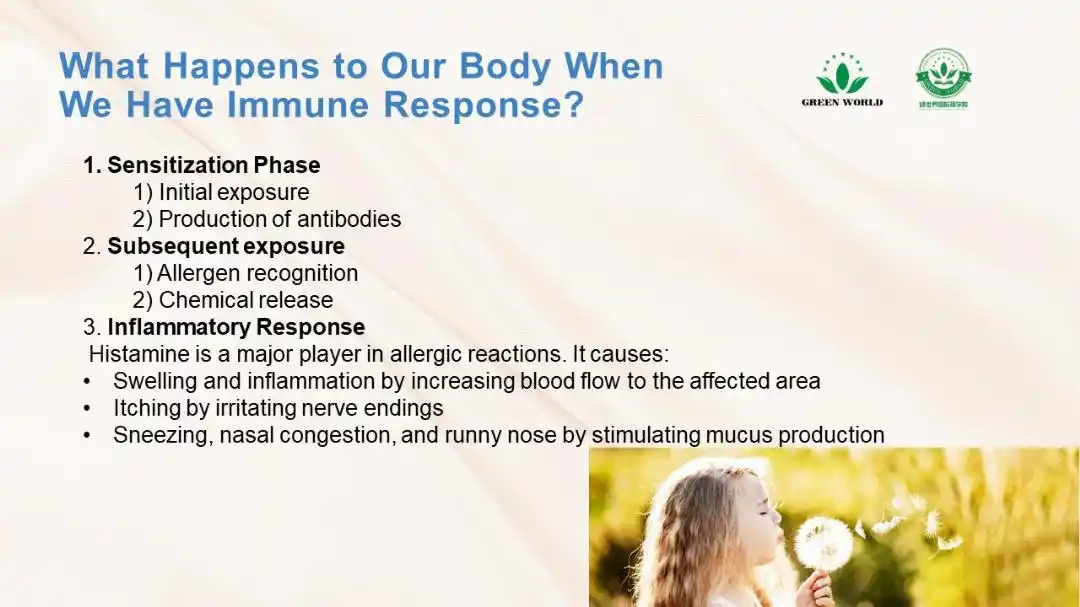
Green World Online Store
May 31, 2025 at 04:26 AM
What happens to our body when we have Immune Response :
1. Sensitization Phase
1) Initial exposure: When you first encounter an allergen (e.g., pollen, pet dander, or food), your immune system mistakenly labels it as harmful.
2) Production of antibodies: The immune system produces Immunoglobulin E (IgE) antibodies specific to that allergen. These antibodies attach to immune cells called mast cells and basophils, which are found in tissues and the bloodstream.
2. Subsequent Exposure
1) Allergen recognition: The next time you're exposed to the same allergen, it binds to the IgE antibodies on mast cells and basophils.
2) Chemical release: This triggers the release of inflammatory chemicals like histamine, prostaglandins, and leukotrienes from these cells.
3. Inflammatory Response
Histamine's role: Histamine is a major player in allergic reactions. It causes:
> Swelling and inflammation by increasing blood flow to the affected area.
> Itching by irritating nerve endings.
> Sneezing, nasal congestion, and runny nose by stimulating mucus production.
Other symptoms: Chemicals like leukotrienes and prostaglandins exacerbate the reaction, causing symptoms such as hives, watery eyes, and difficulty breathing.
